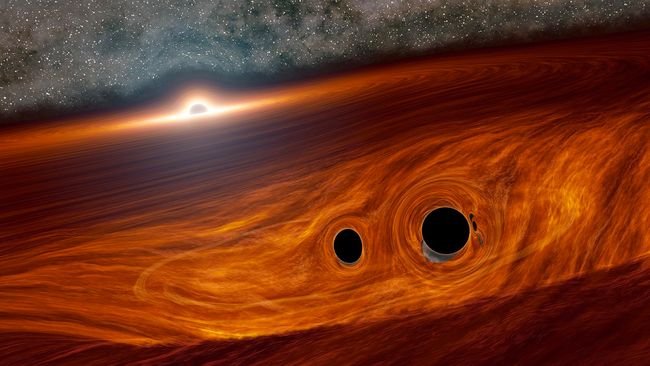Scientists spot flash of light from colliding black holes. But how?
By Meghan Bartels - Space.com Senior Writer 7 hours ago

An artist's depiction of two black holes merging within the disk of a supermassive black hole, later
releasing a burst of light.
(Image: © Caltech/R. Hurt (IPAC))
Black holes aren't supposed to make flashes of light. It's right there in the name: black holes.
Even when they slam into each other, the massive objects are supposed to be invisible to astronomers' traditional instruments. But when scientists detected a black hole collision last year, they also spotted a weird flash from the crash.
On May 21, 2019, Earth's gravitational wave detectors caught the signal of a pair of massive objects colliding, sending ripples cascading through spacetime. Later, an observatory called the Zwicky Transient Facility (ZTF) caught a blast of light. As scientists looked at the two signals, they realized both came from the same patch of sky, and researchers started wondering whether they had spotted the rare visible black hole collision.
"This detection is extremely exciting," Daniel Stern, coauthor of a new study on the discovery and an astrophysicist at NASA's Jet Propulsion Laboratory in California, said in a NASA statement. "There's a lot we can learn about these two merging black holes and the environment they were in based on this signal that they sort of inadvertently created."
More:
https://www.livescience.com/black-holes-collision-flash-of-light.html?utm_source=notification

